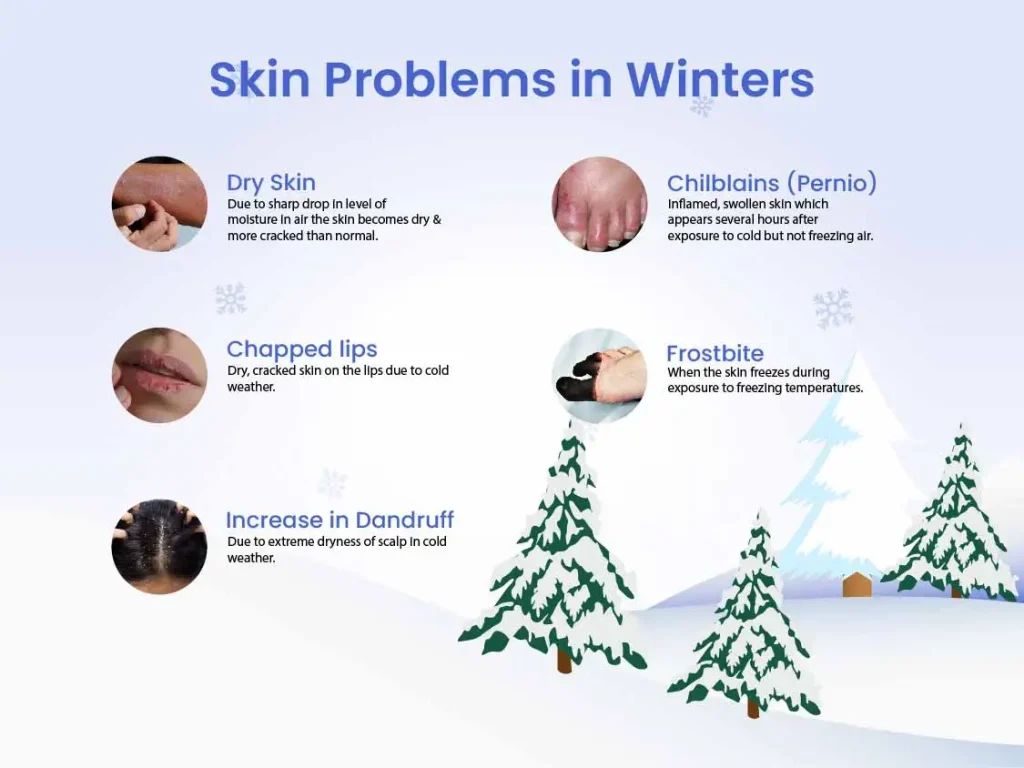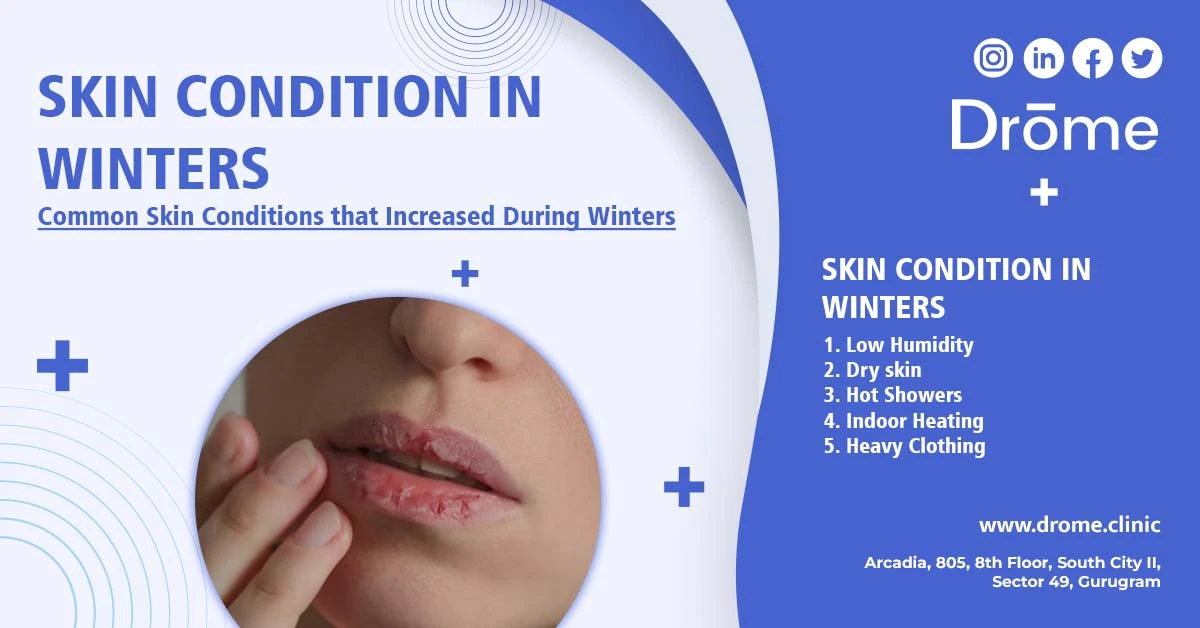Table of Contents
ToggleWinter Skin Condition : Nurturing Your Skin Through Winter
Winter’s touch may be cold, but with mindful care, your skin can retain its warmth and radiance.
Introduction
As winter sets in, our skin often bears the brunt of the harsh weather. Winter’s cold air and low humidity levels can significantly impact skin health. This season demands a shift in our skincare routines to address the unique conditions that can lead to various skin issues.

This guide is dedicated to helping you navigate the challenges winter poses to your skin, ensuring it remains healthy, hydrated and resilient.
Symptoms:
Changes to skin in winters lead to-
- Redness, scaling, and rough texture.
- Tightness and discomfort in the skin.
- Persistent itching, leading to scratching and possible skin barrier damage.
Specific Skin Conditions in Winter
The cold months can exacerbate or trigger several skin conditions:
Dry Skin (Xerosis): Low humidity and indoor heating can strip the skin of moisture, leading to a tight, flaky, and sometimes itchy complexion.
Chapped Lips: Exposure to cold wind and dry air often results in painful, cracked lips.
Increase in Dandruff: Due to extreme dryness of scalp in cold weather
Psoriasis: This chronic autoimmune condition can flare up in colder weather, leading to thick, scaly skin plaques.
Chilblains:Inflamed,swollen skin which appears several hours after exposure to cold but not freezing air.
Frostbite:when the skin freezes during exposure to freezing temperatures
Causes
The primary culprits behind winter skin issues include:
Environmental Factors: Cold and dry outdoor air combined with heated indoor environments create conditions that can sap skin moisture.
Hot Showers and Baths: Prolonged exposure to hot water can remove natural skin oils.
Inappropriate Skincare Products: Products that are too harsh for dry, winter skin can exacerbate skin problems.
Effective Winter Skin Care Tips
To combat winter’s drying effects, consider these tips:
Enhanced Moisturizing: Switch to richer moisturizers. In general, the thicker and greasier a moisturizer, the more effective it will be.
Stay Hydrated: Internal hydration is as crucial as external. Ensure you’re drinking plenty of water.
Gentle Cleansing: Opt for fragrance-free, hydrating cleansers that don’t strip the skin of natural oils.
Indoor Humidity: Consider using a humidifier in your home to maintain a comfortable level of humidity.
Prevention
Key preventive measures include:
- Regular application of emollient-rich moisturizers.
- Dressing appropriately for cold weather to minimize skin exposure.
- Using lukewarm water for bathing and avoiding harsh soaps.
- Limit yourself to one 5- to 10-minute bath or shower daily. If you bathe more than that, you may strip away much of the skin’s oily layer and cause it to lose moisture.
- Using a humidifier to manage indoor air dryness.
Conclusion
Winter demands special care for your skin. By understanding the season’s impact and adjusting your skincare routine accordingly, you can maintain healthy, resilient skin even in the coldest months. Remember, if you’re struggling with skin issues this winter, Drome Family Physicians is here to help with treatments and expert advice.
Winter Skin Condition FAQs
Why does my skin get so dry in the winter?
Winter brings lower humidity levels and harsh winds that strip moisture from your skin, along with indoor heating that further dries out the air.
Are hot showers bad for my skin in winter?
Yes, hot showers can strip your skin of its natural oils, leading to dryness. It’s better to use lukewarm water for bathing during the winter months.
Can I still get sunburned in the winter?
Absolutely. The sun’s UV rays can be just as harmful in the winter, especially when reflected off snow. It’s important to continue using sunscreen.
How can I protect my skin from the harsh winter wind?
Covering up with scarves, hats, and gloves is effective. Also, applying a protective moisturizer before heading outdoors can help.
Is it necessary to use a humidifier indoors during winter?
Using a humidifier can add moisture to dry indoor air, which helps prevent your skin from drying out.







